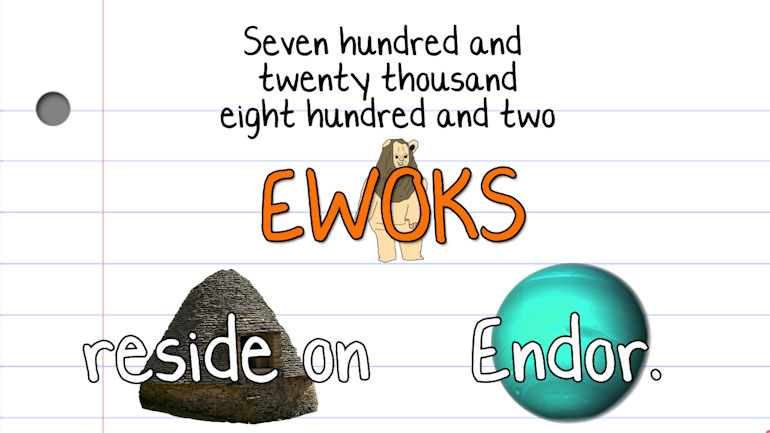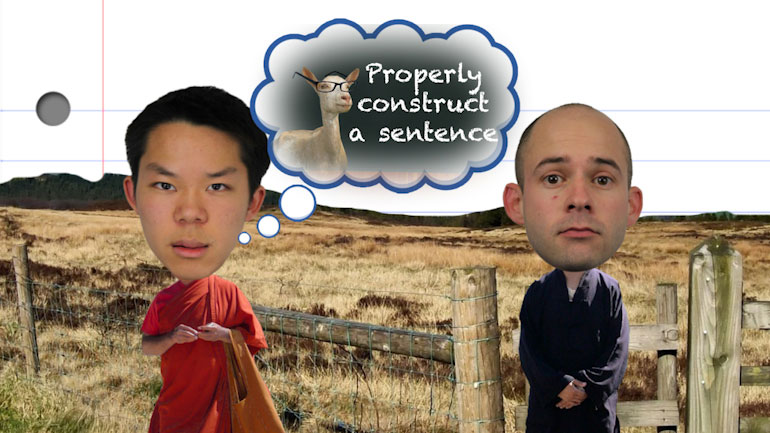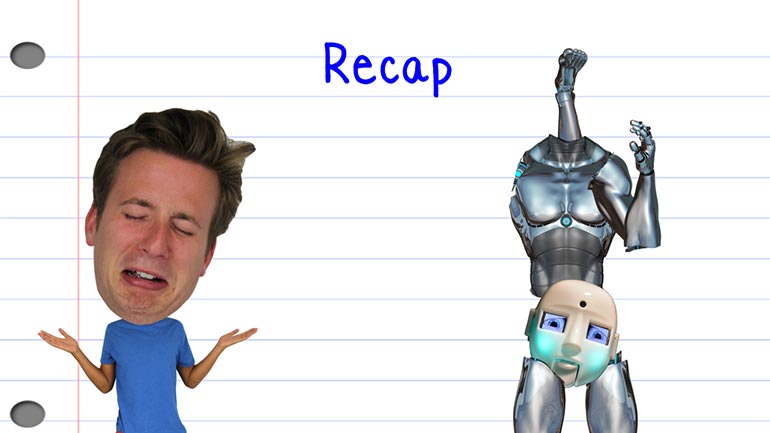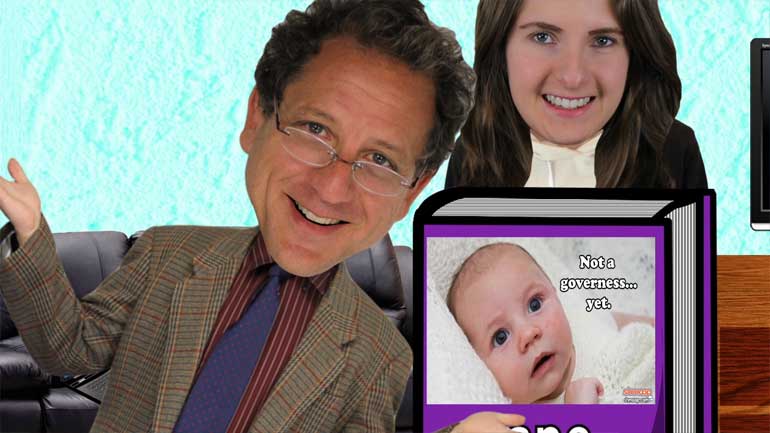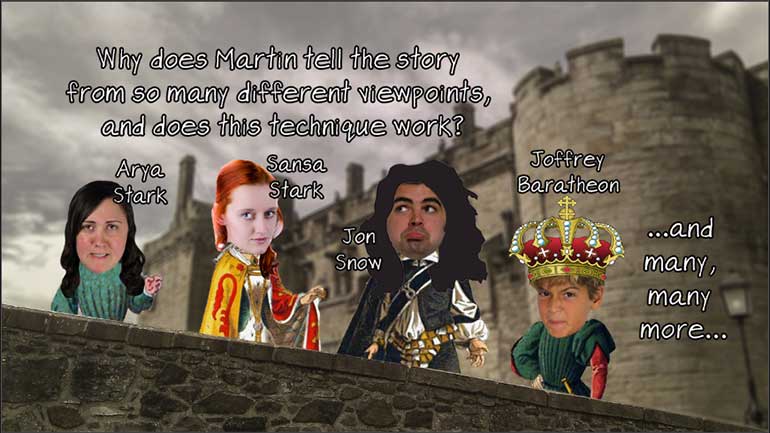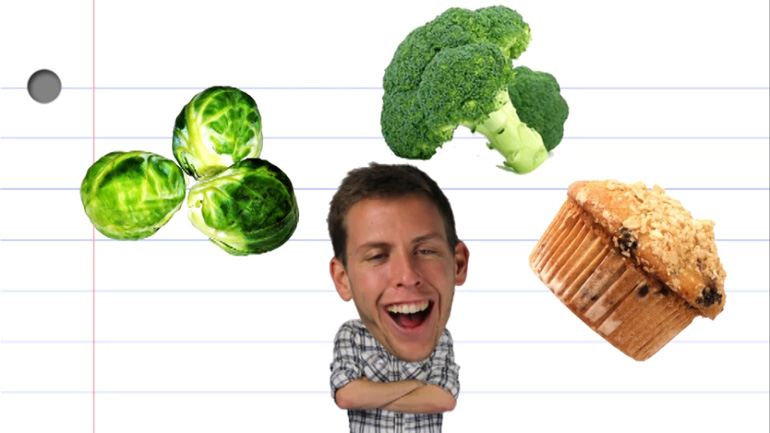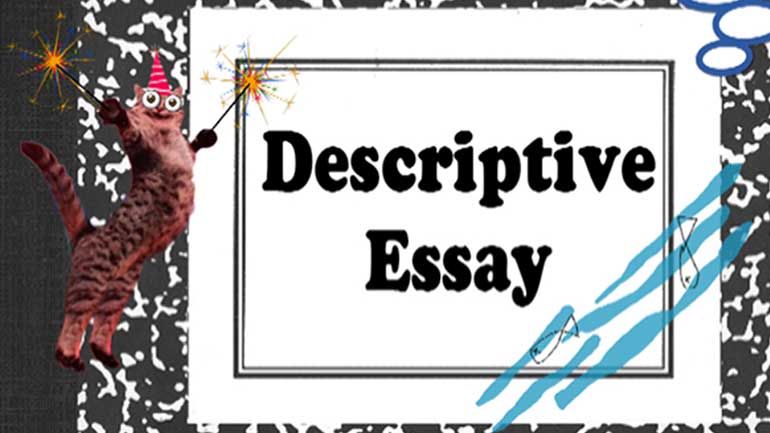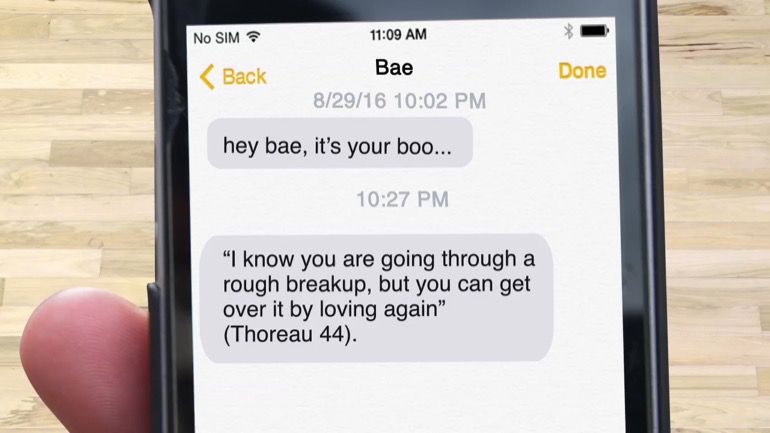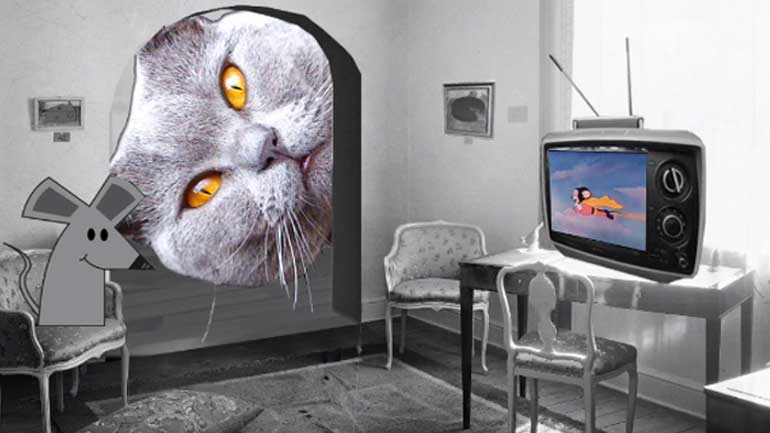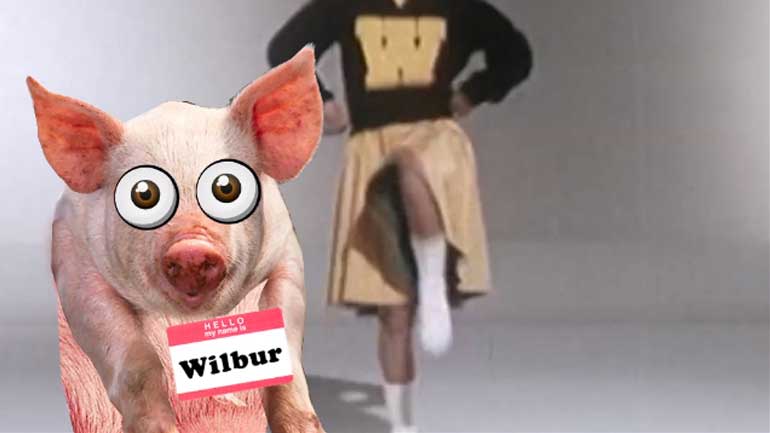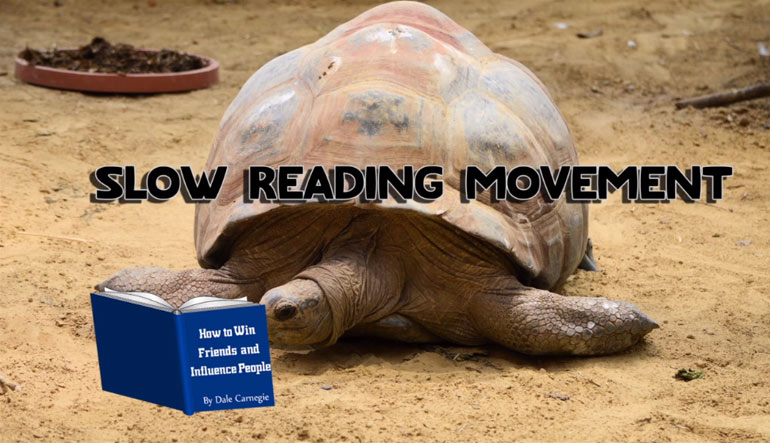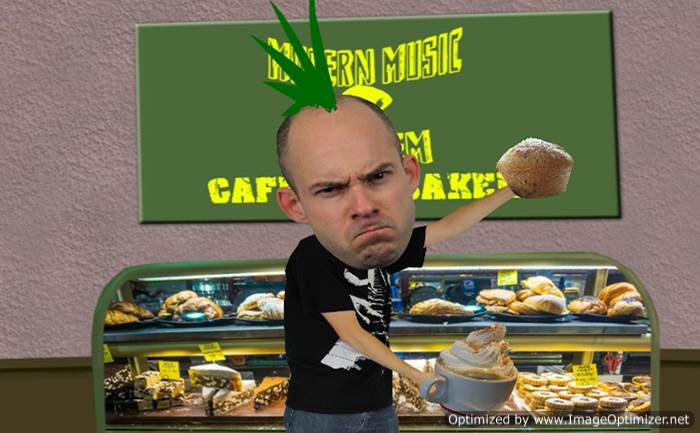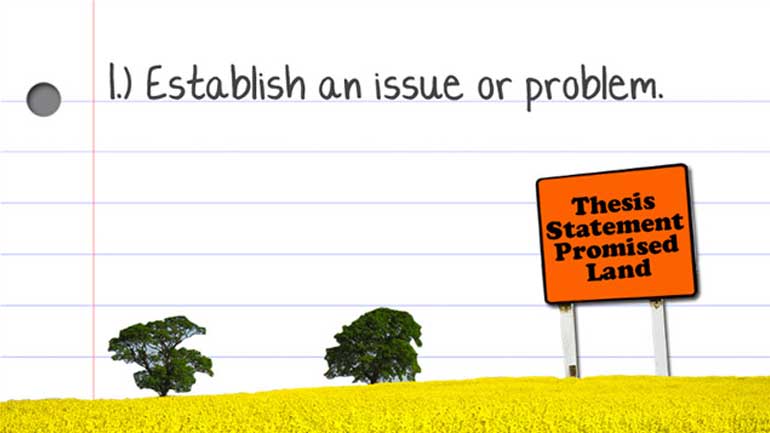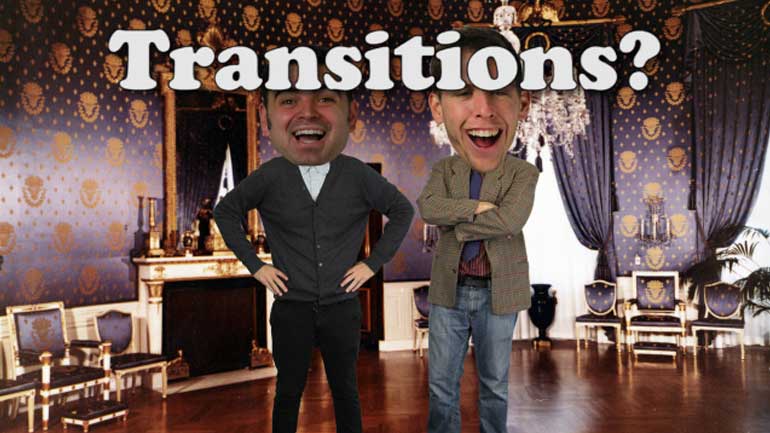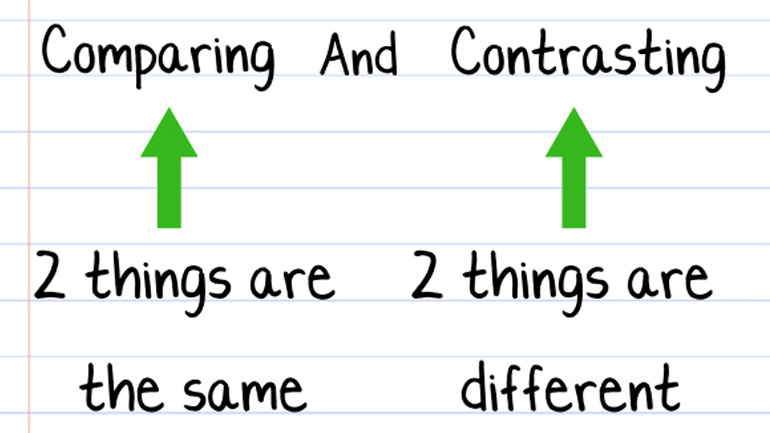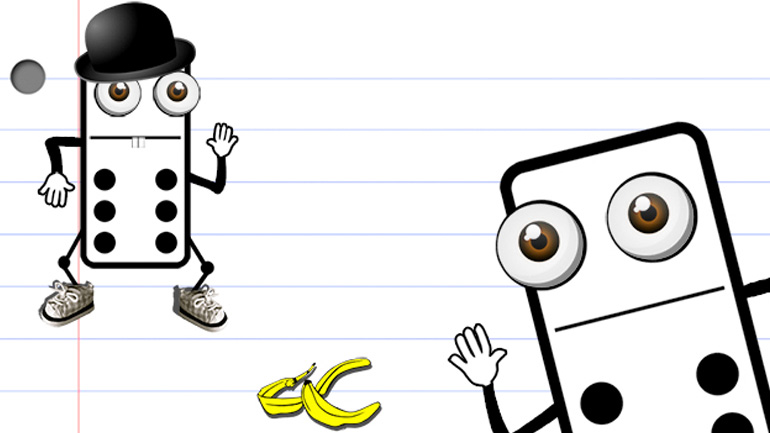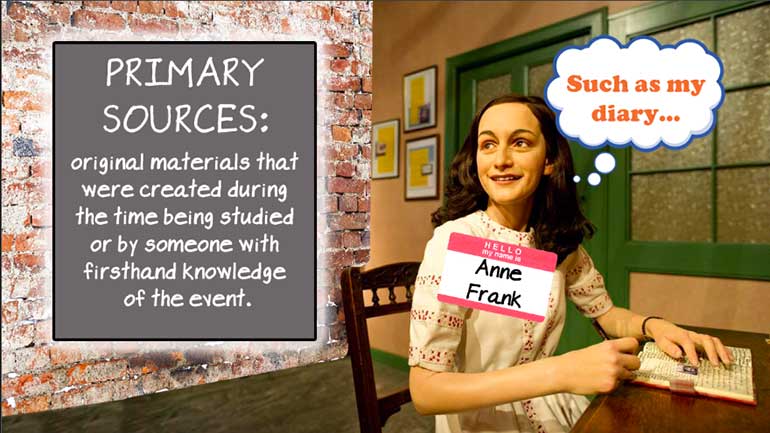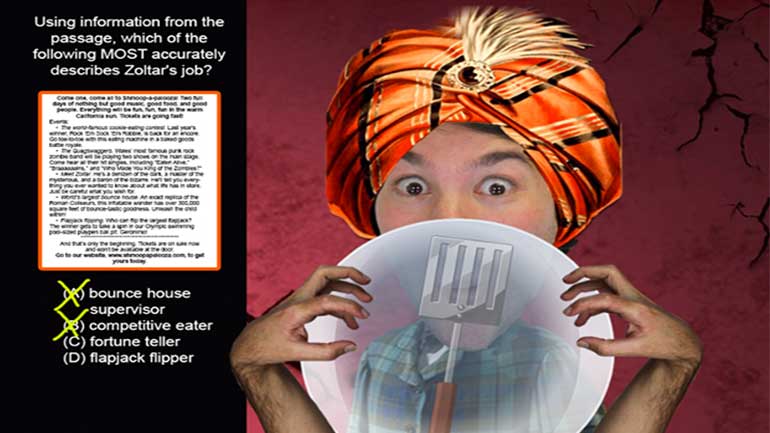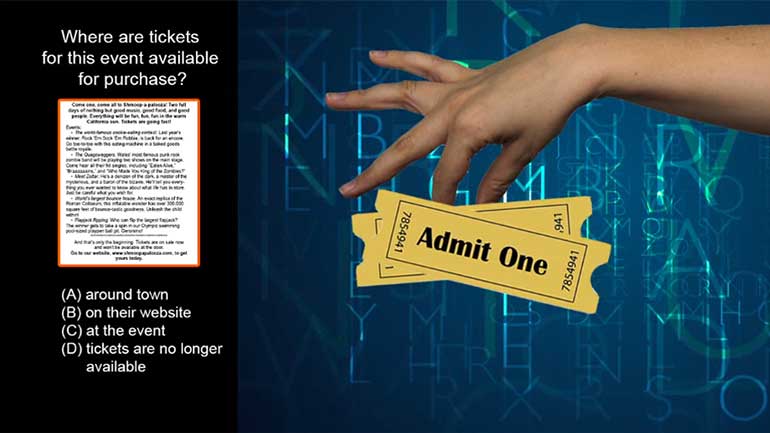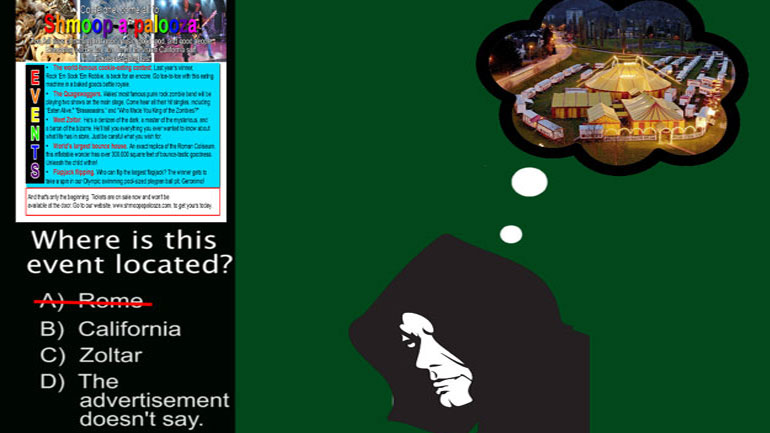ShmoopTube
Where Monty Python meets your 10th grade teacher.
Search Thousands of Shmoop Videos
Writing Videos 89 videos
Want even more deets on wordiness? Click here to review. Or take a look at our entire grammar section for all the goods.
Want even more deets on tenses? Click here to review. Or take a look at our entire grammar section for all the goods.
Want even more deets on semicolons? Click here to review. Or take a look at our entire grammar section for all the goods.
How to Know If a Source Is Reliable 3976 Views
Share It!
Description:
No, this does not involve tracking authors down and grilling them on their credentials. You are not Liam Neeson, and this is not Taken 3. You're sleuthing methods will need to be a bit more covert.
Transcript
- 00:04
How to Know If a Source is Reliable, a la Shmoop. [Football hits man in head]
- 00:08
Meet Maria. She’s always cutting corners.
- 00:11
When she encounters a young man selling supposedly brand-name purses out of the trunk of his [Maria meetings car salesman]
- 00:16
car, she thinks she’s found the best deal ever…
- 00:18
…until, that is, Maria discovers the Burberry handbag she covets is actually made by Barberry... [Maria holding burberry hand bag]
Full Transcript
- 00:24
…in China…
- 00:26
…out of plastic. While anyone with half a brain should know [Butterfly flys out of Maria's head]
- 00:30
that a designer clutch for sale at a street vendor isn’t the real thing…
- 00:34
…even the savviest writers sometimes have difficulty discerning whether a source is [Girl thinking about writing]
- 00:38
reliable…
- 00:38
…or super shady. So, how do we tell good sources from bad?
- 00:47
Well, first off, did we pull our source off the Internet? While websites can provide us [Farenheit 451 typed into shmoople search engine]
- 00:53
with all sorts of marvelous information…
- 00:55
…and cat pictures…
- 00:56
…the Internet is also rife with gossip and outright lies, which is why we have to be
- 01:01
very, very careful when using online sources. If we’re pulling content from the official [Cat laughing from a laptop]
- 01:07
webpages of the White House, Walmart, or a reputable newspaper like The New York Times…
- 01:11
…then the information we’re using is probably safe, given that it’s been uploaded with
- 01:16
the full weight of the U.S. government… [Congress building lands inside US mail box]
- 01:17
…the Walton family…
- 01:18
…and the liberal media machine behind it. Wikipedia, however, does not make the cut
- 01:23
as a reliable source. Anyone…
- 01:25
…absolutely anyone…
- 01:26
…can log on to Wikipedia and edit articles. Random blog posts with anonymous authors also [Laptop opens and cat laughs]
- 01:32
don’t constitute reliable sources. This brings us to our next criteria for determining
- 01:37
reliability. Whether the source we’re interested in is a book, a piece in an academic journal, [Book lands on tablet and smashes screen]
- 01:43
or an article taken off the Internet, we have to ask: Who’s the author?
- 01:48
The author of a reliable source will be respected in his or her field of study…
- 01:52
…and will cite his or her sources so we can fact-check to our heart’s content.
- 01:57
For example, if we’re writing an essay about President William Howard Taft and his enormous [Pencil writing an essay]
- 02:02
bathtub…
- 02:04
…we should look for source materials written by noted historians…
- 02:09
…Taft’s family, friends, and other contemporaries…
- 02:12
…or maybe even by President Taft himself. We also need to know when a source was written [Pencil hits Taft and page turns]
- 02:17
in order to decide whether it’s reliable or not.
- 02:21
Say we’re writing a paper about yellow fever. While medical texts hailing from the era of
- 02:25
the building of the Panama Canal might be interesting… [Fly buzzing past people]
- 02:28
…a source penned more than one hundred years ago doesn’t tell us much about where yellow
- 02:32
fever is prevalent today, or why… [Man sprays pest spray at fly]
- 02:34
…and what people can do to protect themselves from bleeding all over the furniture.
- 02:39
In other words, a reliable source is appropriate to the topic and the time we’re writing
- 02:45
about. Here’s another criteria for determining
- 02:48
the reliability of a source: What’s the author’s purpose? [Man puts fork into socket and electrocutes himself]
- 02:55
While some authors set out to provide an objective look at a topic…
- 02:58
…others will have an agenda, because they have very strong feelings about the subject…
- 03:02
…or perhaps because their research was sponsored by an organization with a particular outlook. [Man on a ship smiles and sparkles from teeth]
- 03:06
It’s our job when searching for sources to identify where the author is coming from,
- 03:11
why, and if their viewpoint is reliable enough to include in our own work.
- 03:16
For example, say we’re writing a paper on pesticide use in the United States. [Pest crawling on a leaf]
- 03:20
We find an article written by a biologist who claims that a particular pesticide used
- 03:24
on corn doesn’t negatively affect human health…
- 03:27
…even though a dozen other biologists in a dozen other academic papers have come to [People giving thumbs down]
- 03:31
the opposite conclusion.
- 03:34
Given how very different Biologist A’s stance is on our pesticide from the rest of the scientific
- 03:38
community, it’s of the utmost importance that we determine whether he’s a reliable
- 03:43
source or not.
- 03:44
In this case, a quick search determines that Biologist A’s study was sponsored by the
- 03:50
company that manufactures the pesticide. [Pest spray and pest appear on study findings]
- 03:53
Sorry, Biologist A, but we vote you off the island.
- 03:58
We’ve discussed how reliable sources will have authors who know what they’re talking
- 04:05
about…
- 04:05
…and who are willing to put their names on their work.
- 04:08
Reliable sources will be relevant to our topic… [Darts land into topic targets]
- 04:10
…and will have citations that allow us to check the source’s veracity.
- 04:17
While we can look online for reliable sources, we know to be cautious about what we find
- 04:21
on the Internet. One last question: Why does it matter whether
- 04:24
we use reliable sources or not?
- 04:27
Whether we’re producing a paper for school or for an employer… [Woman at work typing on laptop]
- 04:30
…we’re putting our names to something. We’re saying that what we’ve written can
- 04:34
be relied on.
- 04:35
When our own reputations are on the line with our peers, our teachers, or our employers,
- 04:40
we must take the extra time… [Clock rings]
- 04:42
…and really, it isn’t much…
- 04:44
…to make sure that the information we use to back our opinions
- 05:30
is good. Otherwise, we’ll look like idiots. [Woman wearing a dunce hat]
Related Videos
This video offers some rules of thumb for writing a good introduction. It covers everything from tone (confidence is key!) to phrases and clichés...
Even the best essays can go wrong in the conclusion—this video covers what not to do in a conclusion to help avoid any essay-ending problems. The...
You want to be as picky with your citations as Goldilocks was with her porridge—not too many, not too few... juuust right. You want to prove that...
Want even more deets on wordiness? Click here to review. Or take a look at our entire grammar section for all the goods.
Want even more deets on Run-on Sentences? Click here to review. Or take a look at our entire grammar section for all the goods.





